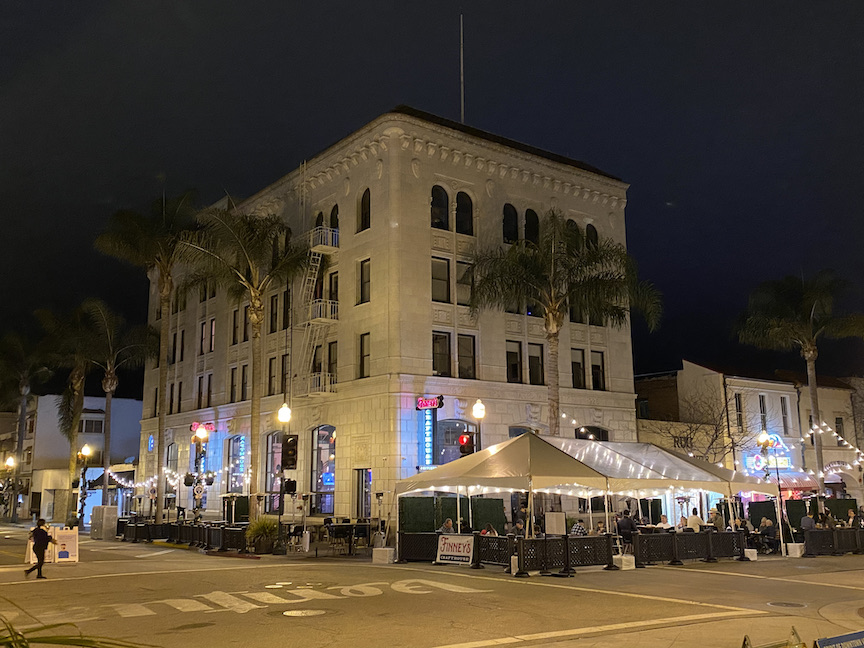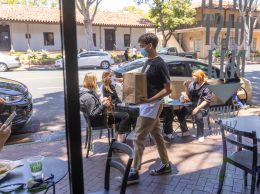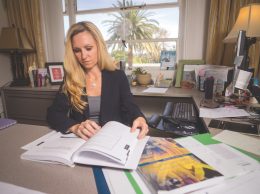
Restaurants are open outdoors again, as California is back under the county-by-county tiered reopening system after more than a month under a stay-at-home order that split the state into five regions.
Ventura, Santa Barbara and San Luis Obispo counties are all again in the state’s purple tier, the most restrictive one, as cases in the region have stayed well above the margin to be considered “widespread.” Many businesses and other locations that were closed during the stay-at-home order can now reopen, including hair salons, barbershops and personal care businesses indoors, and gyms and fitness centers, restaurants, museums and zoos outdoors.
Additionally, a state restriction against leisure travel has been lifted. During the ban, no hotel or lodging facility in the state was allowed to accept reservations from out-of-state travelers, except for essential travel, unless the reservation was for at least enough time for the travelers to quarantine in their hotel room.
Being able to reopen for leisure travel is important for the Santa Barbara hospitality industry, which has been hit especially hard by the recommendations against travel.
“We are grateful to our public officials for lifting some of the restrictions that have taken a heavy toll on so many local workers and struggling businesses,” Visit Santa Barbara President and CEO Kathy Janega-Dykes said in a news release. “Our community finally can start to get back to work and do what they do best with COVID-19 protocols in place. They are eager to safely welcome back residents and visitors to our restaurants, wineries, retail stores, lodging properties and other attractions.”
Because of the order against leisure travel, hotel occupancy dropped to just below 30% for both January and December. The city of Santa Barbara collected just $385,130 in transient occupancy taxes for the month of December, compared to $1.1 million in December 2019.
There is some question over how many travelers will be able to come back to the region. A California travel advisory against going more than 120 miles from home still remains in effect, which means someone traveling from Long Beach would likely be advised to not come to Santa Barbara.
The stay-home order, issued in early December, went into effect when each region’s intensive care capacity was projected to be lower than 15%. San Luis Obispo, Santa Barbara and Ventura counties were all included in the Southern California region, making the fate of businesses on the Central Coast dependent on not just the state of local hospitals and regional COVID-19 statistics, but also how larger, more populated areas like Los Angeles and San Diego were holding up.
The regional order was lifted when the state projected ICU capacity to rise above 15% four weeks in advance. Gov. Gavin Newsom announced that all five regions met that guideline in a press conference on Jan. 25, but cautioned state residents to continue taking steps to mitigate the spread of COVID-19 in their communities.
“Everything that should be up is up, and everything that should be down is down,” Newsom said, “but we are not out of the woods.”
During his address, the governor urged people to avoid social mixing as much as possible. While the state is not treating gatherings between households as if they are as dangerous as they were during the holidays, official guidelines still warn residents to avoid gatherings between three or more households. During the stay-home order, all gatherings of more than one household were banned.
The governor also expressed his wish that counties will be able to rise through the tiers quickly, which will allow more businesses to reopen and more restrictions to be lifted, but that will likely take a fair amount of time.
In Ventura County, the seven-day average case rate per 100,000 people was 57.8, well above the 4-7 case rate required to go back into the next most-restrictive tier. In Santa Barbara County, the seven-day average case rate was 49.5, and in San Luis Obispo County, the average case rate was 47.7.






 Print
Print Email
Email

















